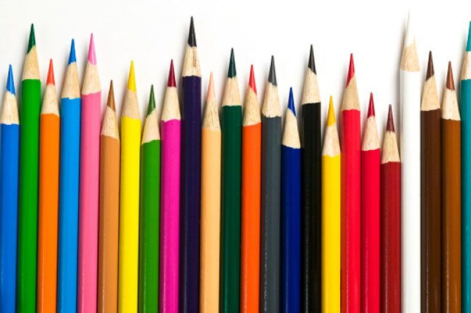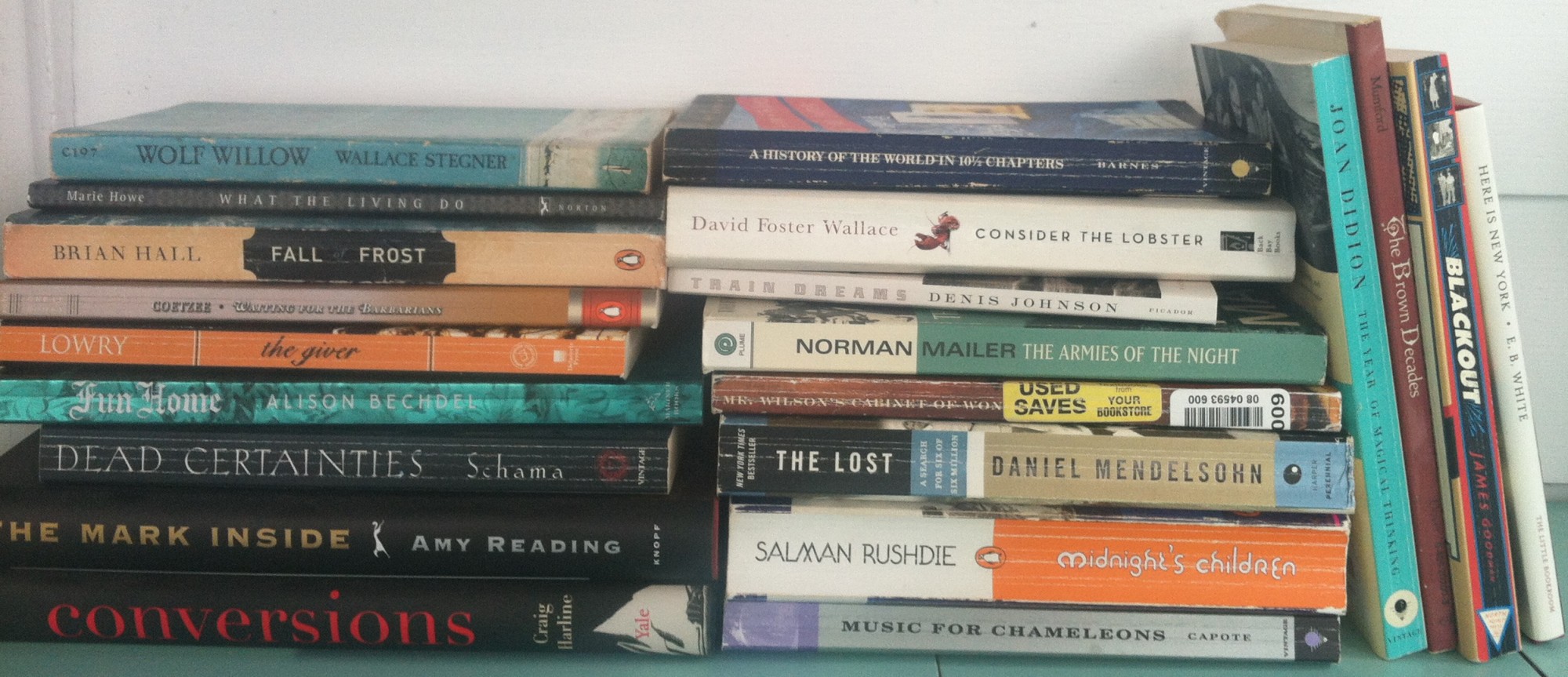Exploring the Relationship between Artful Prose and Scholarly Production
Cornell University
Saturday, May 13, 2017
Brought to you by Historians Are Writers (HAW!)

All graduate students are expected to become professional writers, and yet few of them get the opportunity to study writing as an art and a craft. This one-day conference is designed for people who would like to add some creative spark to their academic writing, or who would like to pursue broader-audience writing projects (or both). Some of the events are open to the public; the afternoon workshops are reserved for registered graduate students.
Schedule of Events:
Continental breakfast available, 8:30-9:00. Klarman Atrium.
WORDS OF WELCOME (Aaron Sachs), 9:00-9:15. Klarman Auditorium.
- Plenary Roundtable on Artfulness for Academics (9:15-10:45).
Open to the public. Klarman Auditorium.
Sarah Ensor (English, Portland State U.)
James Goodman (History and Creative Writing, Rutgers-Newark)
Laura Martin (Harvard University Center for the Environment)
Catherine Taylor (Dept. of Writing, Ithaca College)
MODERATOR: Heather Furnas, Cornell Library
Coffee Break, 10:45-11:00. Klarman Atrium.
- Plenary Roundtable on Writing and Publishing for a “Broader” Audience (11-12:30).
Open to the public. Klarman Auditorium.
Lauren Chambliss (Communication, Cornell U.)
Amy Kohout (History, Colorado College)
Amy Reading (Independent writer and scholar)
Sandy Zipp (American Studies and Urban Studies, Brown U.)
MODERATOR: John Forester, City and Regional Planning, Cornell U.
- Lunch (12:30-1:45). Klarman Atrium.
Reserved for Registered Workshop Participants and Leaders.
- Writing Workshops (2-4:45). Various locations around the Arts Quad.
Reserved for Registered Workshop Participants. (Workshops are listed below with locations.)
Each workshop has 3-4 participants and 1-2 leaders.
Participants have pre-circulated short pieces of writing (max 1200 words).
- History Slam/Happy Hour (5-7pm). Hollis E. Cornell Auditorium, Goldwin Smith Hall.
Open to the public. A chance to eat, drink, and listen to people read their creative work out loud. It’s like a poetry slam, but with “history,” defined very broadly to include any type of creative academic writing. And there’s no slamming: this is a non-competitive event celebrating the sound of artful scholarship. Note: the Slam has an OPEN-MIKE format. Please consider bringing something to read! (Each reader will be limited to 5 minutes and is prohibited from apologizing for his or her work or offering any preamble whatsoever. Just say your name, give the piece’s title if you’d like to, and start reading.) Anticipating that some potential readers might waver about whether to share their work, the conference organizers will provide several bottles of liquid courage.
Workshop Leaders: In addition to the plenary speakers listed above, the following people will also be leading afternoon workshops:
Melissa Gniadek (English, U. Toronto); Brian Hall (Independent Writer); Ben Ristow (Writing and Rhetoric, Hobart and William Smith); Aaron Sachs (History, Cornell U.); Robert Vanderlan (Center for Teaching Excellence, Cornell U.); and Josi Ward (History of Architecture, Cornell U.).
Conference Organizer: Aaron Sachs, Department of History. With the much-appreciated support of Barb Donnell, John Forester, Heather Furnas, Joe Giacomelli, George Hutchinson, Katie Kristof, Claire Perez, Paul Sawyer, and Kay Stickane.
Sponsors (all at Cornell University): Historians Are Writers (HAW!); The Department of History; The Institute for Social Sciences; The Society for the Humanities; The Dean’s Office of the College of Arts and Sciences; The Graduate School; and The Knight Institute for Writing Across the Disciplines.
BIOS:
Lauren Chambliss (Communication, Cornell U.): Lauren teaches writing in Cornell’s Department of Communication, and she is the former Communication Director at the Atkinson Center for a Sustainable Future.
Sarah Ensor (English, Portland State U.): Sarah is a former core member of Historians Are Writers (HAW) here at Cornell, and now she teaches in the English department at Portland State University (though she will be moving to the University of Michigan in the fall).
John Forester (City and Regional Planning, Cornell U.): John is a long-time friend of HAW and facilitator of writing workshops. He has also written several books, including Dealing with Differences: Dramas of Mediating Public Disputes(2009).
Heather Furnas (Cornell Library): Heather was a founding member of HAW. She received her Ph.D. from the Cornell History department, which gave her dissertation its highest prize. Heather currently works at the Cornell Library in the Rare and Manuscript Collections.
Melissa Gniadek (English, U. Toronto): Melissa is a former core member of HAW, and now she teaches in the English department at the University of Toronto.
James Goodman (History and Creative Writing, Rutgers-Newark): Jim is the author of several works of history, including Stories of Scottsboro (1994), which was short-listed for the Pulitzer Prize. He teaches history and creative writing at Rutgers University-Newark.
Brian Hall (Independent Writer): Brian is the author of several works of fiction and nonfiction, including the best-seller I Should Be Extremely Happy in Your Company: A Novel of Lewis and Clark (2002). He lives in Ithaca and often teaches writing at Colgate University.
Amy Kohout (History, Colorado College): Amy used to be the coordinator of HAW. Now she teaches in the history department at Colorado College.
Laura Martin (Harvard University Center for the Environment): Laura is a former core member of HAW. Now she is a fellow at Harvard’s Center for the Environment, and in the fall she will be starting as a professor of Environmental Studies at Williams College.
Amy Reading (Independent writer and scholar): Amy lives in Ithaca and is a long-time friend of HAW. She holds a Ph.D. from Yale in American Studies, and she is the author of The Mark Inside: A Perfect Swindle, A Cunning Revenge, and a Small History of the Big Con (2012).
Ben Ristow (Writing and Rhetoric, Hobart and William Smith): Ben has published fiction, nonfiction, and poetry, and teaches writing at Hobart and William Smith College.
Catherine Taylor (Dept. of Writing, Ithaca College): Catherine is the author of several works of nonfiction, including Apart(2012) and Giving Birth (2002), and she teaches writing at Ithaca College.
Robert Vanderlan (Center for Teaching Excellence, Cornell U.): Rob is the author of Intellectuals Incorporated: Politics, Art, and Ideas Inside Henry Luce’s Media Empire (2010). He has taught in Cornell’s history department and currently works at Cornell’s Center for Teaching Excellence.
Josi Ward (History of Architecture, Cornell U.): Josi a former core member of Historians Are Writers (HAW) here at Cornell and is now living in North Carolina, where she is finishing her dissertation and working as a historic preservationist.
Sandy Zipp (American Studies and Urban Studies, Brown U.): Sandy teaches in the American Studies and Urban Studies departments at Brown University. He is the author of Manhattan Projects: The Rise and Fall of Urban Renewal in Cold War New York (2010). He is also the faculty advisor for the Pen and Shovel Club, HAW’s sister organization at Brown (four members of the Club are participating in this conference).
LIST OF WORKSHOPS:
WORKSHOP A: GOLDWIN SMITH 144
LEADER: Amy Reading
PARTICIPANTS: Brian Clarke (Science and Technology Studies, Cornell); Anya Golovkova (Asian Studies, Cornell); Jonathan Lambert (Earth and Atmospheric Sciences, Cornell).
WORKSHOP B: GOLDWIN SMITH 156
LEADERS: Catherine Taylor and Sarah Ensor
PARTICIPANTS: Brooke Grasberger (History, Brown U.), Eliana Hernandez Pachon (Romance Studies, Cornell), Molly Reed (History, Cornell), Krithika Vachali (English, Cornell).
WORKSHOP C: GOLDWIN SMITH 158
LEADERS: Jim Goodman and Brian Hall
PARTICIPANTS: Andy Barrientos-Gomez (Romance Studies, Cornell), Charis Boke (Anthropology, Cornell), Matt Dallos (History, Cornell), Joe Giacomelli (History, Cornell).
WORKSHOP D: GOLDWIN SMITH 160
LEADER: Amy Kohout
PARTICIPANTS: Jennifer Fownes (Natural Resources, Cornell), Eve O’Connor (History, Brown U.), Kritapas Sajjapala (Asian Studies, Cornell).
WORKSHOP E: GOLDWIN SMITH 162
LEADERS: Ben Ristow and Lauren Chambliss
PARTICIPANTS: Salma El idrissi (Communication, Cornell), John Foo (Biomedical Engineering, Cornell), Bethany Jorgensen (Natural Resources, Cornell), Xiaolu Wang (Economics, Cornell).
WORKSHOP F: GOLDWIN SMITH 164
LEADER: Sandy Zipp
PARTICIPANTS: Ellen Abrams (Science and Technology Studies, Cornell), Sebastian Diaz Angel (History, Cornell), Kristen Ryan (Landscape Architecture, Cornell).
WORKSHOP G: GOLDWIN SMITH 181
LEADER: Rob Vanderlan
PARTICIPANTS: Mark Deets (History, Cornell), Rachel Hestrin (Soil and Crop Sciences, Cornell), Nicole Sintetos (American Studies, Brown U.).
WORKSHOP H: MCGRAW 145
LEADER: Aaron Sachs
PARTICIPANTS: Robert Beazley (Natural Resources, Cornell), Onam Bisht (Landscape Architecture, Cornell), Ana Ozaki (History of Architecture, Cornell).
WORKSHOP I: WHITE 104
LEADERS: Josi Ward and Melissa Gniadek
PARTICIPANTS: Cameron Afzal (Landscape Architecture, Cornell), Kate Duffy (American Studies, Brown U.), Yuanyuan Liu (Sociology, Cornell), Emiko Stock (Anthropology, Cornell).
WORKSHOP J: WHITE 114
LEADER: Laura Martin
PARTICIPANTS: Alan Chiu (Biological and Environmental Engineering, Cornell), Rachel Odhner (Anthropology, Cornell), Sarah Portway (Fiber Science, Cornell).
FURTHER READING
Books about Writing:
Lynda Barry, What It Is
Tracy Kidder, Good Prose: The Art of Nonfiction
Verlyn Klinkenborg, Several Short Sentences about Writing
Christopher Lasch, Plain Style
Phillip Lopate, To Show and To Tell: The Craft of Literary Nonfiction
Francine Prose, Reading Like a Writer
Stephen Pyne, Voice and Vision: A Guide to Writing History and Other Serious Nonfiction
Helen Sword, Stylish Academic Writing
Helen Sword, Air and Light and Time and Space: How Successful Academics Write
Joseph Williams, Style: Lessons in Clarity and Grace
William Zinnser, On Writing Well
Some Examples of Artful Scholarship:
Marshall Berman, Everything That Is Solid Melts into Air
Eula Biss, On Immunity
Julia Blackburn, Daisy Bates in the Desert
Natalie Z. Davis, The Return of Martin Guerre
John Demos, The Unredeemed Captive
Eduardo Galeano, Memory of Fire
Amitav Ghosh, In an Antique Land
James Gleick, Time Travel: A History
James Goodman, Stories of Scottsboro
Brian Hall, The Impossible Country
Craig Harline, Conversions
Robert Pogue Harrison, Gardens: An Essay on the Human Condition
Saadiya Hartman, Lose Your Mother
Jonathan Holloway, Jim Crow Wisdom
Shigehisa Kuriyama, The Expressiveness of the Body
Jill Lepore, The Secret History of Wonder Woman
Roger Levine, A Living Man from Africa
Louis Masur, The Soiling of Old Glory
William McFeely, Sapelo’s People
Daniel Mendelsohn, The Lost
George Packer, The Unwinding
Jennifer Price, Flight Maps
Hugh Raffles, Insectopedia
Amy Reading, The Mark Inside
Lauren Redniss, Thunder and Lightning: Weather Past, Present, Future
Oliver Sacks, The Mind’s Eye
Jani Scandura, Down in the Dumps
Simon Schama, Dead Certainties
Rebecca Skloot, The Immortal Life of Henrietta Laks
Rebecca Solnit, Savage Dreams
Jonathan Spence, The Death of Woman Wang
Deborah Tall, From Where We Stand
Catherine Taylor, Apart
Stella Tillyard, The Aristocrats
Robert Vanderlan, Intellectuals Incorporated
Samuel Zipp, Manhattan Projects
